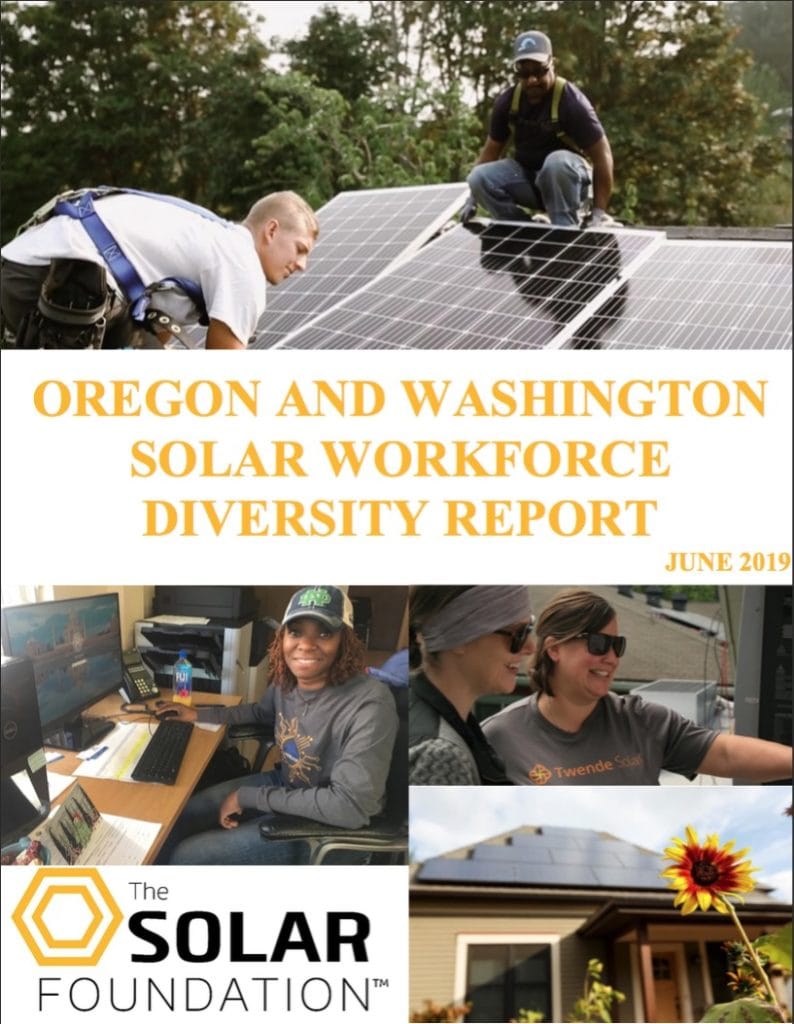NW solar industry lags in workforce diversity
New report suggests how employers, governments, and labor can collaborate to match employer needs with qualified candidates of color
A new Solar Foundation report that was supported by the NW Energy Coalition finds that only about one in ten solar industry jobs in Washington and Oregon is held by a person of color. For management positions, the number is about one in fourteen. One in eight residents of Washington and Oregon identifies as a person of color. In all, solar companies in Washington and Oregon provide about 7,300 jobs.
The report is based on a survey of more than two-dozen Washington and Oregon solar companies. 80% reported that it is either somewhat difficult or very difficult to find job candidates of color who have the necessary training and skills for the positions they are trying to fill. According to the report, “This suggests that much more work could be done to ensure a talented candidate pool is available for this rapidly growing industry.” That includes job training programs many of which are highlighted in the report. But, the report’s summary findings also suggest that much more can be done on the employer side as well.
- Sixty-nine percent of companies we interviewed indicate they do not formally track employee gender, sexual orientation, ethnic, and racial diversity.
- Companies acknowledge the importance of workforce diversity, and are seeking to expand their workforce diversity and inclusion efforts, butmany do not know where to start or do not have the resources to take steps to ensure a more diverse and inclusive workforce.
- Fifty-nine percent of companies rely on word-of-mouth as a recruiting technique, which reinforces the existing workforce demographics and often excludes underrepresented populations.
- A competitive hiring market leads to a general lack of applicants for open solar installation positions.
- The majority of the solar companies interviewed find it somewhat or very difficult to find qualified applicants for open positions. Of the companies that have difficulty, 66 percent feel the most difficult positions to fill are installers. Most of the companies interviewed struggle to find licensed electricians and Limited Renewable Energy Technicians (LRTs).
- Solar contractors should actively participate in the training of LRT and electrical apprentices to ensure a robust pipeline of licensed workers is available
- Entry-level installation positions in the Oregon and Washington solar industry have low barriers to entry and opportunities for rapid advancement. New hires have the potential to be promoted to a mid-level unlicensed installer within one year or less, resulting in a 17 percent pay raise. For an entry-level licensed installer (i.e., LRT or electrician), new hires also have the potential to be promoted to a mid-level installer within one year or less, resulting in a 28 percent pay raise.
The report concludes by identifying steps that employers, governments, and communities can take to bring workers, skills, and opportunities together and to promote the continued expansion of the solar industry in Washington and Oregon.


